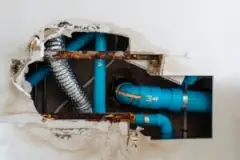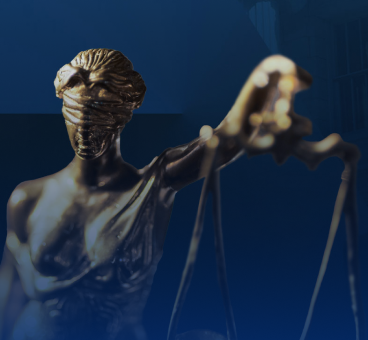
Depending on how the damage occurred, many different parties could potentially be responsible for water damage in a condo. A Florida property damage lawyer could help you identify potentially responsible parties like:
- A maintenance crew
- A management company
- A construction team
- Other unit owners
Keeping Your Condo Safe From Water Damage
If you live in a condo, you are only responsible for certain aspects of your home’s maintenance and upkeep. These responsibilities may vary from state to state. For example:
- The Commonwealth of Massachusetts has no laws concerning the ownership and operation of condominiums.
- Florida has some laws that govern condo maintenance, such as Florida Statutes § 553.899, which requires regular inspections. The condo association must ensure they comply with this law.
- Delegation of responsibilities should be outlined in the lease or other legal agreement that you signed with the condo owner. This document should indicate whose job it is to perform pipe maintenance and take precautions against natural disasters.
Ways to Protect Against Water Damage in a Condominium
You as an individual or as part of the condo association can take action to protect against various kinds of water damage, including:
- Complying with any relevant state laws, such as the Florida statute that calls for building inspections
- Having a responsive maintenance or management team that can quickly address any problems that residents report to them
- Checking the pipes (or having the maintenance team check the pipes) on a regular basis
- Preparing for natural disasters, such as hurricanes, by keeping the condo in good repair and adding additional protections (e.g., sandbags) to keep water out
Water Damage and Negligence
What happens if your water damage could have been prevented? For example:
- What if the company that built the condo did not comply with local building codes?
- What if the maintenance or management company that you hired ignored repeated complaints from residents about old or leaking pipes?
- What if someone else who lives in the condo treated the property irresponsibly by accidentally leaving the faucet on or failing to report damage?
If the water damage in your condo was not an accident, you may have additional legal recourse for finding who is responsible and seeking compensation. A local law firm can tell you more by locating the source of the damage and telling you who failed to prevent it.

What to Do About Water Damage in Your Condo
Unfortunately, even the best precautions will not prevent water damage in every single case. Whether you notice a stain on the wall or have been flooded out of your unit, it is important to:
- Report the damage to the condo association right away
- Follow up with the maintenance or management team if they do not respond in a reasonable period of time
- Keep important documents, like insurance policies and inventory lists, in a safe place that you can easily access, even if the unit is damaged
- Make a record by listing lost or damaged items and taking photos of the water damage
- File a property damage claim with the right insurance company, making sure to include any evidence you have already collected
Whose Insurance Should You File a Water Damage Claim With?
If the damage was caused by a completely unforeseeable event—for instance, if a storm damaged some water pipes—then you can turn to your own insurer. If another condo unit owner is to blame, you can try going through their insurer.
On the other hand, say that the condo’s management team knew the pipes were very old but did nothing to fix them. In this situation, you might be able to get their insurer to pay for any damage caused by their negligence.
Will Your Insurance Company Pay for Condo Water Damage?
That depends on what your policy covers. You can hire a property damage attorney to review your insurance policy and tell you:
- What types of events the policy covers. For example, your policy might cover water damage from a hurricane but not from flooding.
- What kinds of damage the policy covers. Your policy may cover damage from certain incidents but not others, unless you have additional policies for that incident.
- What financial losses the policy covers. After suffering water damage, some people have to rent a hotel room or order take-out meals when they normally would not. Policies may or may not cover these additional expenses.
- What the rules are for filing a policy. Typically, you must file within a certain period of time. You can then expect a visit from an insurance adjuster, who will interview you about what happened and request various forms of evidence.
Insurers Do Not Like Paying Water Damage Claims
Even if you have a legitimate claim that should be covered by your policy, the insurance company might look for ways to undermine your claim. This would save them money by minimizing the amount they have to pay you. Be cautious if:
- The adjuster asks you to record a statement about the damage and how it occurred
- The insurer rejects your claim very quickly or for reasons that do not seem right to you
- The insurer tries to spin a new story about how the damage happened that would absolve them of responsibility for paying your claim
Property Damage Lawyers Can Protect You
Dealing with water damage to your condo is enough of a hassle. If the at-fault party or the insurance company tries to give you a hard time, you can always let an attorney handle the matter.
With help from a local law firm, you can focus on rebuilding your life while your legal representative looks into the water damage, finds evidence for your case, and fights hard for every penny you need.

You Can Sue Over Water Damage in a Condo, Let our Lawyers Help
Ged Lawyers offers multilingual legal services to clients in Florida and Massachusetts. Call us today for a free case evaluation. We can figure out who is responsible for the water damage to your condo and determine the right way of seeking compensation for your losses.
